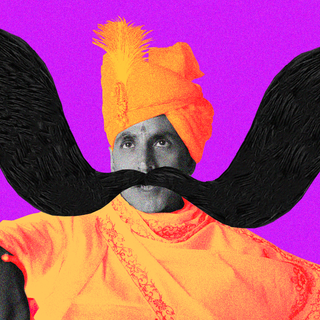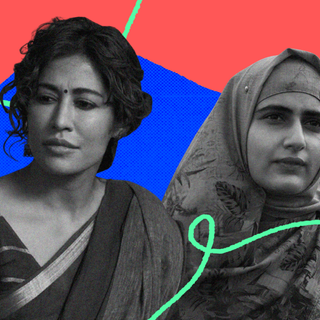
The Sadness of Finishing Books and Shows, Explained
The brain forms ‘real’ attachments to fictional characters’ lives and worlds.

My friend has a bittersweet coping mechanism for dealing with loss. After laying their hands on a new book, the very first thing they do is tear its last page. That way, they will never truly be able to finish it; the story stops but never ends.
There are very few things in the world as devastating as turning the last page of a book one has lived with. Or watching the last episode one has remained loyal to for hours, if not days. I ended a one-week-long relationship with Anatomy of a Scandal just yesterday; before that, there was a steamy affair with Flaubert’s Madame Bovary that made my heart yearn for more. These were narratives that didn’t just play on a screen or a page, but actually set up house in my mind. It’s almost as if I hadbefriended Emma Bovary; even found compassion in her forlorn pursuit of love.
The end of anything can be heart-wrenching. But for fictional narratives that lie in books and limited television series, the end means mourning a loss so strange yet sodeeply universal. This is an unwritten contract between the creative offering and the mind; we immerse ourselves in universesnew and old while bartering our attention for this gateway to often escape our real world. Some have termed the melancholy of finishing a work of literature as “post-book blues.” But why the melancholia in the first place?
John Mayer, a clinical psychologist, confirms this air of gloom. “We often go into a state of depression because of the loss we are experiencing,” he said. “We call this situational depression because it is stimulated by an identifiable, tangible event. Our brain stimulation is lowered (depressed) such as in other forms of depression.”
Conversely, it is the pleasure people derive from trysts with fiction that makes the loss more dispiriting. Watching a series regularly — even binge-watching — is linked to releasing dopamine in the brain. Dopamine, as the pleasure chemical, acts as the body’s cheerleader; “you should keep watching!” or “come on, make it to the end of chapter nine,” it urges people. A Netflix survey found that 73% of participants reported “positive” feelings after binge-watching something. What lies at the end of the binge then is a saga of loss and yearning.
“When binge-watching your favorite show, your brain is continually producing dopamine, and your body experiences a drug-like high. You experience a pseudo-addiction to the show because you develop cravings for dopamine,” Renee Carr, a clinical psychologist, told NBC News.
Related on The Swaddle:
Is This Normal? “I Imagine Friendships With Fictional Characters”
People and lives, even when they live in a book or a show, forge relationships with an unwitting audience. This dynamic keeps varying in its intensity; some days more time is spent with Charlie and Nick from Heartstopper as compared to friends and family. Other days, people pass on a girls’ night out for a night in with Agatha Christie’s Murder of Roger Ackroyd. The time spent and familiarity built registers in the brain in unforeseen ways; the brain doesn’t care if the world it watches unfold is real or imaginary.
“Our brains code all experiences, be it watched on TV, experienced live, read in a book or imagined, as ‘real’ memories,” explained Gayani DeSilva, a psychiatrist at Laguna Family Health Center in California. “So when watching a TV program, the areas of the brain that are activated are the same as when experiencing a live event. We get drawn into storylines, become attached to characters, and truly care about outcomes of conflicts.”
The brain doesn’t care that fiction, by its very definition, isn’t real — it can’t help but believe. This is because the brain registers reality the same way it registers representation. Jim Davies, a professor of cognitive science at Carleton University, even argues that this is an evolutionary trait people carry; the rational parts of the brain are programmed to process both fact and fiction with the same perceptual machinery. So it doesn’t matter if it’s only an eight-episode series or a 426-page book; the paradox of fiction dictates that people must interpret it as reality.
Separating fiction from reality is not an easy undertaking. The plot of a book, or a character on-screen, almost always makes sense; all while reality doesn’t. It is then terribly easy to identify with, relate to, or even think of these characters as people we know and understand. DeSilva goes on to explain the different ways we may bond with characters which, in turn, leaves us crestfallen at the prospect of bidding them farewell.
“‘Identification’ is when we see a character in a show that we see ourselves in,” she noted. In Modern Family, for instance, the individual can identify with “an adoptive parent, a gay husband, the father of a gay couple, the daughter of a father who marries a much younger woman, etc. The show is so popular because of its multiple avenues for identification.” Then there is “wishful identification,” narratives that respond to the desire to escape or feed an aspiration for the individual. “The identification with power, prestige, and success makes it pleasurable to keep watching,” she says. Once the link is cut-off, once the show ends, this aspiration has to die too — making it harder to move on from these narratives.
Perhaps, the most critical way this plays out is through the “parasocial relationship“; people perceive a sense of familiarity and affirmation and forge a one-sided connection with the character. “When we form a parasocial bond with someone, we feel like we really know them,” Shira Gabriel, an associate professor of psychology at the University at Buffalo in the U.S., told HuffPost. “We know logically that we don’t, but our primitive brain doesn’t realize that so the feeling is real.” These relationships are safe and sacrosanct; no one has the power to alter our dynamic with them. Parasocial relationships inspire aggression and toxicity too, just like a real-life relationship would.
This explains why post-book blues or a show’s ending feels like a gut-wrenching break-up. We aren’t only losing a story, but a human connection.
Saumya Kalia is an Associate Editor at The Swaddle. Her journalism and writing explore issues of social justice, digital sub-cultures, media ecosystem, literature, and memory as they cut across socio-cultural periods. You can reach her at @Saumya_Kalia.
Related


In ‘Modern Love Mumbai,’ the City Dictates How Women Navigate Love and Loss
